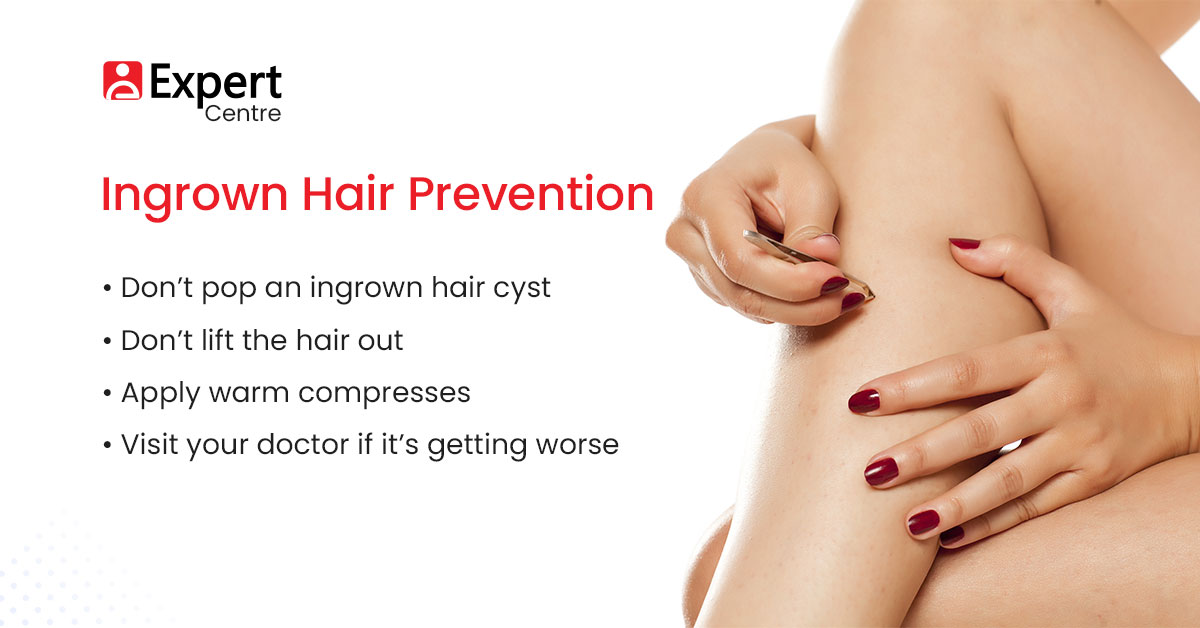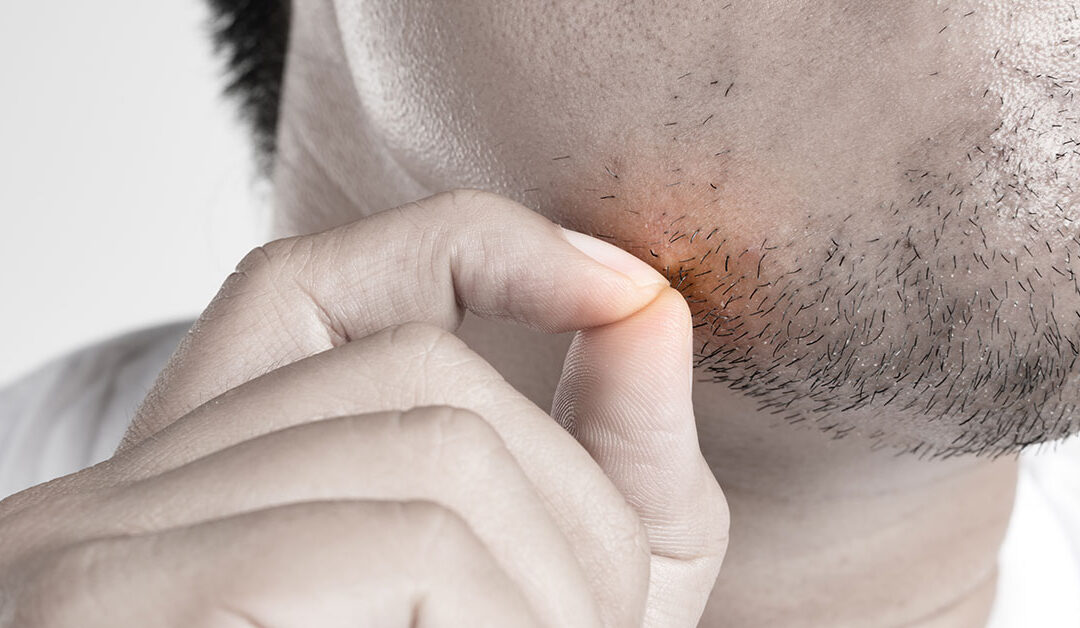I don’t think I need to describe the problem – ingrown hairs are all the rage right now, and everyone has them! As a matter of fact (and this really weirds me out), once every five minutes, one person Googles “how to get rid of an ingrown hair”. Ingrown hairs are pesky little problems, especially if they have decided to take residence on your face.
While you can visit a waxing salon or threading appointment to get facial hair removal done, it might become difficult to manage all the hair-removal services for yourself. Trust me, I feel your pain. Although ingrown hair is red in appearance, it’s more like an infection of the hair follicle, and this causes the hairs to grow inward instead of up or out. They can be extremely painful, but there are some things you can do to make them go away.
Laser hair removal is the best option to avoid ingrown hair, and it has been that way since it first came into being as a hair removal technique. In fact, that is one of the many reasons why this hair removal technique is so popular, especially among those people who have suffered from growing ingrown hairs.
Treating ingrown hair and preventing them from coming back is tricky, and some people are at higher risk of growing these than others. With that said, we will give brief guidelines on how to treat the issue and prevent them from future.
Generally, there is no need to treat ingrown hair as they tend to clear up on their own. If the hair doesn’t start to grow back through the skin, you can try one of the following tips:
Stop Removing Hair in The Area
In the area where ingrown hair appears, you better stop waxing, shaving and plucking in this area. If you continue doing these things, you will aggravate the sensitive area. Scratching in even picking the hair can also add discomfort, which might lead to a skin infection, scar, or something even worse.
Apply Some Warm Compresses
You have to place warm compresses on the infected area. You have to rub a wet cloth or even a soft toothbrush in a circular motion over the skin.
Gently Pull It Out
Note: We strictly advise against it. But once it emerges above the skin, you can use a needle to pull it out gently.
You better wait for the area to heal completely before plucking it out, and the skin will heal again. You shouldn’t dig into the skin because breaking through the skin causes an infection.
Remove Dead Skin
You need to gently wash the area and exfoliate ingrown hair to help it return to the surface of the skin. If this doesn’t work, you might ask the doctor to recommend a medication to help dead skin cells slough off quickly.
Control Inflammation with Cream
If the ingrown pubic hair caused inflammation and redness, ask the doctor to prescribe a topical ointment. Topical treatments can reduce swelling and irritation around the ingrown hair follicle.
Retinoids
Retinoids and Tretinoin (Renova and Retin-A) speed up clearing dead skin cells. It helps to fade away dark skin patches caused by ingrown hairs. Yes, you will need a prescription from the doctor for retinoids, but beware because these medications may cause dry skin.
In case you are pregnant, you better avoid retinoids. The medication is harmful to your baby, and it can cause some congenital disabilities.

Preventing Ingrown Hair
You can prevent ingrown if you continue to groom your hair and by following these tips:
Prime the Area for Shaving
You can treat the pubic area before using the razor to shave and reduce the risk of ingrown hair. Wash the skin using a mild soap, and rub on some shaving gel. Just use a product designed for sensitive areas. When done, you have to dry the area thoroughly before you put on underwear and pants.
Try a Single Blade Razor
Single razors are designed for these issues, and they reduce the risk of ingrown hairs. So, try these special razors. You can also buy a single-bladed razor. In case you are using several old razors, stop it, use a fresh one instead. Dull blades don’t clean the area; they usually increase the risk of ingrown hair.
Try Laser Hair Removal
I heard many people saying that laser hair removal is expensive, and I’m totally against it. Try to do a little math. When comparing the cost of using shaving, waxing or ointments, you’ll find laser pretty cost-effective. Laser treatment is a long-term solution for ingrown hairs, and it removes hair at a deeper level, damages the hair follicle, and prevents it from coming back again. The treatment requires 4-6 sessions over a specific time, including weeks and months.
Mind the Non-Razor Removal Treatments
Chemical removals are an option, but they can irritate sensitive skin. So, it’s better to test hair remover on a small patch of skin on another part of the body before using it on the pubic area. If there is no reaction in the 24-hour window, the product is safe, and you can use it.
The skin in the genital area is sensitive compared to the arm and leg. Some prescription creams reduce hair regrowth, especially when you use them after the laser or other treatment. Electrolysis is another way to remove hair. It uses an electrode to destroy the hair root. Electrolysis requires several treatments over the course of a few weeks and months.
What Should You Avoid?
If you have ingrown hairs, you better avoid the following things:
- Don’t pull or pick the ingrown hair; this will probably lead to an infection
- Never squeeze the bump. If you try to pop it, it may lead to an infection or scar
- Never dig under the skin. If you are trying to remove the ingrown hair, then do it gently.
When Should You Visit a Doctor?
Occasional ingrown hair is nothing intensive. You can follow the prevention steps given above to avoid the issue in the future. Sure, you can visit the doctor in case you suffer from the following issues:
- You Often Get Ingrown Hair: The Doctor helps you find treatment to prevent future problems.
- You Have Too Much Hair: If you have abnormal and unusual hair, the doctor will look for other health issues that can contribute.
If you don’t know anyone around you or are afraid that you might land into a scam, we recommend Expert Centre. The clinic will provide you with the details of certified professionals who have extensive experience in curing these issues.


Recent Comments